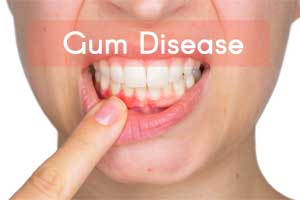- Home
- Editorial
- News
- Practice Guidelines
- Anesthesiology Guidelines
- Cancer Guidelines
- Cardiac Sciences Guidelines
- Critical Care Guidelines
- Dentistry Guidelines
- Dermatology Guidelines
- Diabetes and Endo Guidelines
- Diagnostics Guidelines
- ENT Guidelines
- Featured Practice Guidelines
- Gastroenterology Guidelines
- Geriatrics Guidelines
- Medicine Guidelines
- Nephrology Guidelines
- Neurosciences Guidelines
- Obs and Gynae Guidelines
- Ophthalmology Guidelines
- Orthopaedics Guidelines
- Paediatrics Guidelines
- Psychiatry Guidelines
- Pulmonology Guidelines
- Radiology Guidelines
- Surgery Guidelines
- Urology Guidelines
Gum disease causing bacteria could also lead to Alzheimer's

USA: Porphyromonas gingivalis -- bacteria largely responsible for periodontitis (gum disease) -- also contributes to the development of Alzheimer's disease, a new study finds.
The study, published in the journal Science Advances, found that bacteria that cause gum disease are present in the brains of people with Alzheimer’s, not just in their mouths. The study further finds that in mice, the bacteria trigger brain changes typical of the disease.
These findings have emerged from a new study in mice that researchers from Cortexyme, Inc., a pharmaceutical company that aims to develop new therapeutics for Alzheimer's disease, have conducted.
Poor oral health is a risk factor for Alzheimer’s disease. What’s not clear is whether gum disease causes the disorder or is merely a result—many patients with dementia can’t take care of their teeth, for example.
Gum disease is a widespread problem that can lead to more negative outcomes, from tooth loss to an increased risk of cancer.
Also Read: Treat gum diseases for managing diabetes better: Lancet
Stephen S. Dominy, co-founder of Cortexyme, and colleagues zeroed in on one bacterium — Porphyromonas gingivalis — which is a Gram-negative oral anaerobe that drives the development of gum disease.
"Infectious agents have been implicated in the development and progression of Alzheimer's disease before, but the evidence of causation hasn't been convincing," notes Dr. Dominy.
To explore whether the bacteria were causing disease, the team swabbed the gums of healthy mice with P. gingivalis every other day for 6 weeks to establish an infection. They later detected the bacteria in the animals’ brains, along with dying neurons and higher than normal levels of β-amyloid protein. In a lab dish, the gingipains—whose job is to chop up proteins—damaged tau, a regularly occurring brain protein that forms tangles in people with Alzheimer’s. In the brain, this protein damage may spur the formation of tangles, they say.
Giving the mice a drug that binds gingipains cleared P. gingivalis from the brain better than a common antibiotic, and it reduced the β-amyloid production and resulting neurodegeneration. Targeting gingipains likely works by cutting off nutrients and other molecules that the enzyme supplies to the bacteria, Dominy says. In initial tests with human volunteers, a similar drug seemed safe and showed signs of improving cognition in nine participants with Alzheimer’s, the company says. A larger study is slated to start this year.
Also Read: More evidence of link between severe gum disease and cancer risk
When looking at a mouse model, the team found that infection with P. gingivalis led to greater production of beta-amyloid in the rodents' brains.
Beta-amyloid is a marker of Alzheimer's disease in the brain; in this neurodegenerative condition, the toxic protein accumulates in excess, forming into plaques that disrupt normal communication between brain cells.
The researchers eventually identified a compound called "COR388" as the most effective gingipain inhibitor. COR388 was able to reduce the presence of P. gingivalis in the brain after infection with this bacterium, and it lowered neuroinflammation.
The compound also stopped the production of toxic beta-amyloid and had a protective effect on neurons in the hippocampus, the brain area that is largely responsible for memory-related processes.
The Cortexyme team is looking to organize a larger clinical trial, testing the effect of COR388 in people with mild to moderate Alzheimer's disease some time this year.
For further reference follow the link: 10.1126/sciadv.aau3333

Disclaimer: This site is primarily intended for healthcare professionals. Any content/information on this website does not replace the advice of medical and/or health professionals and should not be construed as medical/diagnostic advice/endorsement or prescription. Use of this site is subject to our terms of use, privacy policy, advertisement policy. © 2020 Minerva Medical Treatment Pvt Ltd